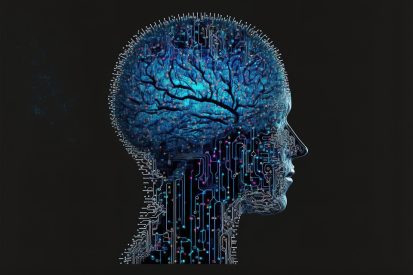
Blockchain technology has revolutionized many industries, and its potential to shape the future of the internet is immense. In this article, we will explore the various ways in which blockchain can impact the internet and its role in shaping the future.
The Role of Blockchain in the Future of the Internet
Blockchain is a decentralized, distributed ledger technology that ensures the security and transparency of transactions. Its potential in shaping the future of the internet lies in its ability to provide a secure, transparent, and tamper-proof platform for various online activities.
1. Decentralization
One of the key features of blockchain is its decentralized nature. This means that there is no central authority controlling the network, making it more resilient to cyber attacks and ensuring the integrity of data and transactions. In the future, blockchain could decentralize the internet, reducing the control of centralized entities and giving more power to individuals.
2. Security
Blockchain uses cryptographic techniques to secure transactions and data, making it highly secure and tamper-proof. This can significantly enhance the security of the internet, protecting sensitive information and reducing the risk of cyber attacks.
3. Transparency
Blockchain provides transparency by maintaining a public ledger of all transactions. This can improve trust and accountability on the internet, as users can verify the authenticity of information and transactions easily.
4. Data Privacy
With blockchain, users can have more control over their data and how it is used. This can empower individuals to have ownership of their data and decide who can access it, enhancing privacy on the internet.
Potential Applications of Blockchain in Shaping the Future of the Internet
The potential applications of blockchain in shaping the future of the internet are vast and diverse. Some of the key areas where blockchain can make a significant impact include:
1. Internet of Things (IoT)
Blockchain can enhance the security and interoperability of IoT devices, enabling them to securely communicate and transact with each other without the need for centralized control.
2. Digital Identity
Blockchain can provide a decentralized and secure platform for managing digital identities, reducing the risk of identity theft and fraud on the internet.
3. Supply Chain Management
Blockchain can improve the transparency and traceability of supply chains, ensuring the authenticity and integrity of products and transactions within the supply chain.
4. Online Payments
Blockchain can revolutionize online payments by providing a secure and transparent platform for peer-to-peer transactions, reducing the need for intermediaries and lowering transaction costs.
5. Content Sharing and Copyright Protection
Blockchain can enable creators to securely share and protect their content, ensuring that they receive fair compensation for their work and preventing unauthorized use and distribution.
Conclusion
Blockchain has the potential to revolutionize the internet in numerous ways, from enhancing security and privacy to enabling new forms of online transactions and interactions. As the technology continues to evolve, it will undoubtedly play a significant role in shaping the future of the internet and creating a more secure, transparent, and decentralized online environment.
FAQs
Q: Why do we need blockchain to shape the future of the internet?
A: Blockchain provides a secure, transparent, and decentralized platform for online activities, addressing many of the existing shortcomings of the internet and paving the way for new possibilities and innovations.
Q: What are the key benefits of blockchain in shaping the future of the internet?
A: The key benefits of blockchain include enhanced security, transparency, and privacy, as well as reduced reliance on centralized authorities and intermediaries, leading to a more resilient and trustworthy online environment.
Q: How will blockchain impact different industries on the internet?
A: Blockchain has the potential to disrupt numerous industries on the internet, including finance, healthcare, supply chain management, and digital content creation and distribution, among others, by providing new opportunities for innovation and efficiency.



